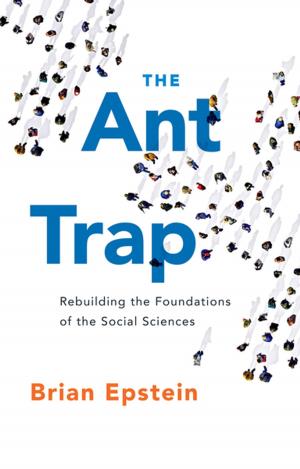Models for Intensive Longitudinal Data
Nonfiction, Health & Well Being, Medical, Ailments & Diseases, Infectious Diseases, Epidemiology, Science & Nature, Mathematics, Statistics, Social & Cultural Studies, Social Science| Author: | ISBN: | 9780190291631 | |
| Publisher: | Oxford University Press | Publication: | January 19, 2006 |
| Imprint: | Oxford University Press | Language: | English |
| Author: | |
| ISBN: | 9780190291631 |
| Publisher: | Oxford University Press |
| Publication: | January 19, 2006 |
| Imprint: | Oxford University Press |
| Language: | English |
Rapid technological advances in devices used for data collection have led to the emergence of a new class of longitudinal data: intensive longitudinal data (ILD). Behavioral scientific studies now frequently utilize handheld computers, beepers, web interfaces, and other technological tools for collecting many more data points over time than previously possible. Other protocols, such as those used in fMRI and monitoring of public safety, also produce ILD, hence the statistical models in this volume are applicable to a range of data. The volume features state-of-the-art statistical modeling strategies developed by leading statisticians and methodologists working on ILD in conjunction with behavioral scientists. Chapters present applications from across the behavioral and health sciences, including coverage of substantive topics such as stress, smoking cessation, alcohol use, traffic patterns, educational performance and intimacy. Models for Intensive Longitudinal Data (MILD) is designed for those who want to learn about advanced statistical models for intensive longitudinal data and for those with an interest in selecting and applying a given model. The chapters highlight issues of general concern in modeling these kinds of data, such as a focus on regulatory systems, issues of curve registration, variable frequency and spacing of measurements, complex multivariate patterns of change, and multiple independent series. The extraordinary breadth of coverage makes this an indispensable reference for principal investigators designing new studies that will introduce ILD, applied statisticians working on related models, and methodologists, graduate students, and applied analysts working in a range of fields. A companion Web site at www.oup.com/us/MILD contains program examples and documentation.
Rapid technological advances in devices used for data collection have led to the emergence of a new class of longitudinal data: intensive longitudinal data (ILD). Behavioral scientific studies now frequently utilize handheld computers, beepers, web interfaces, and other technological tools for collecting many more data points over time than previously possible. Other protocols, such as those used in fMRI and monitoring of public safety, also produce ILD, hence the statistical models in this volume are applicable to a range of data. The volume features state-of-the-art statistical modeling strategies developed by leading statisticians and methodologists working on ILD in conjunction with behavioral scientists. Chapters present applications from across the behavioral and health sciences, including coverage of substantive topics such as stress, smoking cessation, alcohol use, traffic patterns, educational performance and intimacy. Models for Intensive Longitudinal Data (MILD) is designed for those who want to learn about advanced statistical models for intensive longitudinal data and for those with an interest in selecting and applying a given model. The chapters highlight issues of general concern in modeling these kinds of data, such as a focus on regulatory systems, issues of curve registration, variable frequency and spacing of measurements, complex multivariate patterns of change, and multiple independent series. The extraordinary breadth of coverage makes this an indispensable reference for principal investigators designing new studies that will introduce ILD, applied statisticians working on related models, and methodologists, graduate students, and applied analysts working in a range of fields. A companion Web site at www.oup.com/us/MILD contains program examples and documentation.















